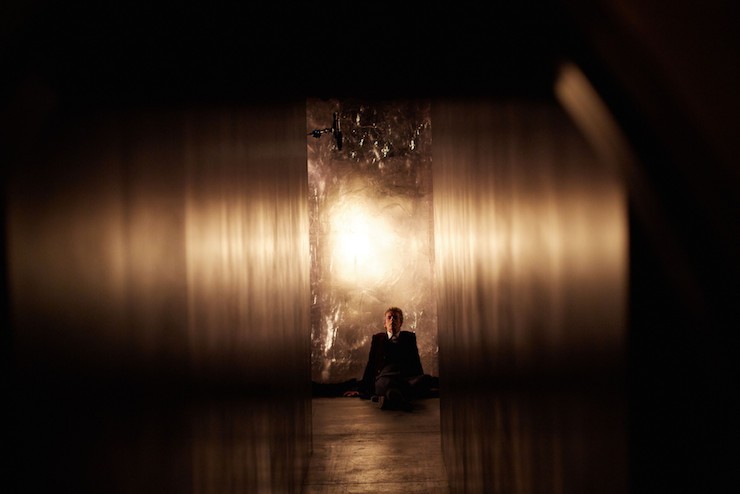The Doctor was completely on his own this week, and the results were positively chilling. And important. Safe to say, we’ve been building up to this episode for a long time.
Summary
The Doctor is teleported to a large, spoke-like castle in the middle of an ocean. He searches around and finds that there is a monster (referred to as the Veil) slowly stalking him. It corners him, and the Doctor escapes only after admitting that he’s afraid to die, causing the Veil to freeze and the castle to reorganize itself like a shifting maze. The Doctor gets cornered again, this time choosing to jump out the window and finding that the water below is populated by countless skulls. When he’s falling out of the window, he retreats to a safe “room” of sorts in his head that looks like the TARDIS console room and contains a still figure of Clara who writes questions on a chalkboard to prompt the Doctor into thinking; while doing so, he comes to the conclusion that this place has been designed to frighten him. He gets out of the water and finds that there are dry replicas of his clothes waiting in a room with a fireplace. He arrives in a courtyard, where there is a mound of earth that he is meant to dig up. As the sun sets, the Doctor notes that the stars are in the wrong position for the teleport’s supposed range. He digs until he discovers a message: the words “I am in 12.” He begins searching for Room #12.
It becomes apparent that that rooms in this castle reset themselves as soon as he leaves them. The teleport room has a skull hooked into some electrodes at the console and the word “Bird” written in sand on the floor. The Doctor has realized that the Veil freezes only when he tells a truth that no one else knows, so the next time he’s caught, he tells the thing that he ran from Gallifrey because he was scared—not bored, as he used to say. He gets to the top tower of the castle and notes that the stars reflect a sky 7,000 years in the future, but knows that the teleporter could not have cause him to travel through time. He drops the skull he found in a teleportation room into the water below. The Doctor eventually finds Room 12, but he needs to castle to shift again before he can enter, so he waits for the Veil and tells it another truth—that Gallifrey has a prophecy about a “hybrid” made up of two warrior races that will destroy Gallifrey. The Doctor admits that he knows what the hybrid is.
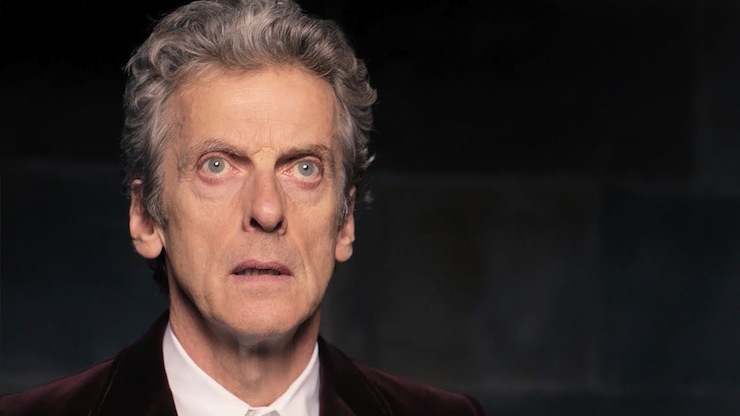
This opens Room 12, and the Doctor finds a large block of Azbantium—400 times stronger than diamond—blocking the way, and the word “Home” on it. He assumes that the TARDIS is on the other side. Suddenly, the Doctor realizes that the word “Bird” was a reference to a Brothers Grimm story called “The Shepherd Boy,” featuring a bird who wears away a diamond mountain with his beak over countless ages. He is quickly losing his will to continue, but Clara’s voice reaches him, telling him not to give up. As the Veil approaches, the Doctor begins punching at the Azbantium wall, destroying his own hand. The Veil burns him, destroying his ability to regenerate and causing a slow death. As he’s dying, the Doctor crawls back to the teleport room; the teleport has a copy of himself inside, just as he arrived, but it needs power to work—so the Doctor hooks himself into the teleport after drawing the word “Bird” in the sand. The Doctor replays this exact scenario over and over for billions of years, each time chipping just a tiny bit out of the Azbantium until he finally breaks through one day.
The castle turns out to be contained within his confession dial, and on the other side of the Azbantium wall… is Gallifrey. The Doctor encounters a boy, telling him to head back to the Citadel and tell them he’s returned. He also claims that the prophecies are wrong: The Hybrid is not half-Dalek, half-Time Lord. He is the Hybrid.
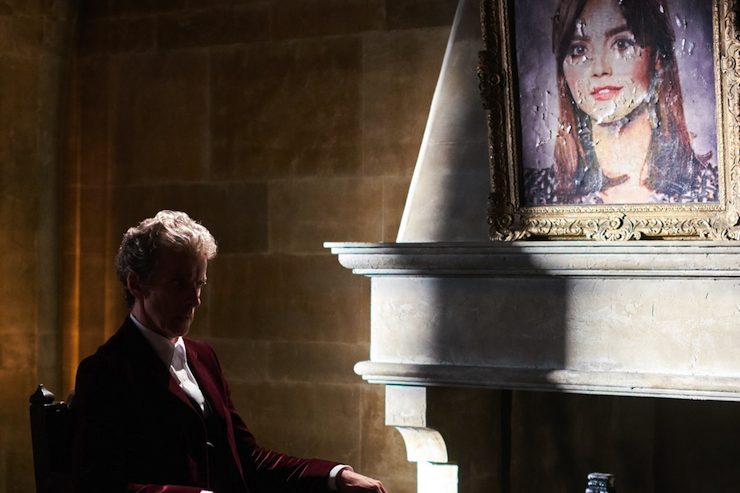
Commentary
Okay. So I had this pegged as the Time Lords before the episode started. Because we know we’ve been leading up to this since the 50th anniversary special, and it made sense to me that this would be the point where it occurred. (It also makes sense that a plot by the Time Lords to get the Doctor to punch through to Gallifrey would accidentally result in the death of his companion, since they are typically callous in that regard. And that’s a definite possibility, though we still don’t technically know who set the trap.) I don’t feel like the episode was going out of its way to hide their hand in the plot, either; the teleporter has a console with Gallifreyan symbols on it, and too much of the castle concerned the Doctor’s very early past.
And I’m glad that the episode didn’t set much store by the mystery, because this was an atmospheric piece if ever there was one. In that regard, it might be one of the best episodes Moffat has ever written for the show. The pacing, the setting, the music, everything was terrifying, and not because of some creepy alien conceit like we get with the Weeping Angels or the Silents. The whole plot reads like one of those “trapped in a room” video games. It’s scary because we key into that loneliness, that slow sense of foreboding.
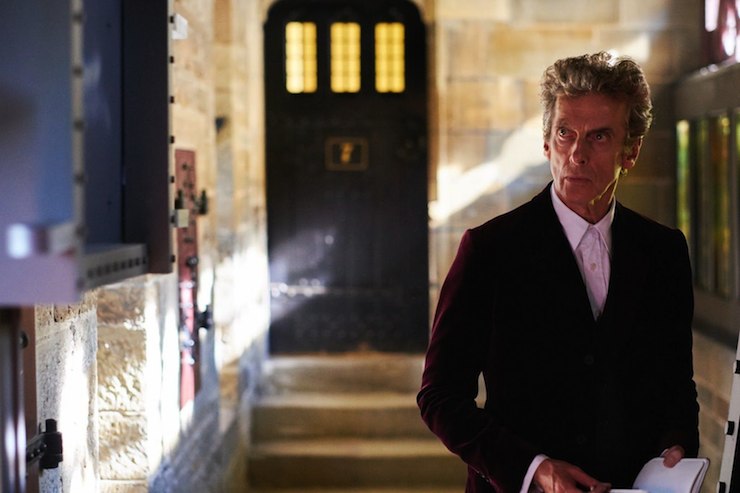
The absence of the companion here is keenly felt because it’s clearly the central reason why the Doctor is afraid—companions provide him with the ability to bluster about importantly, to show off so he can forget how dire the situation is. Without Clara, he’s truly alone. Moffat employs a device that he’s used previously in Sherlock with the Doctor’s ability to slow time in his own mind to work things out, and the use of Clara as a voice in his head is heartbreaking but effective. The sound of her writing on the chalkboard solidifies the Doctor’s isolation, yet manages to be comforting at the same time.
Then there’s the payoff, the realization that the Doctor has gone through this endlessly, over billions of years, just to keep cracking away at a substance 400 times harder than diamonds, to break through to Gallifrey. (I actually screamed aloud to my wife “ALL THOSE SKULLS ARE HIS” at which point she started cursing emphatically at the screen.) Moffat has used fairy tales and nursery rhymes in Who before, but never has it played out so stupendously well, with such purpose. I do wonder if its use is more effective if you’ve already heard the Shepherd Boy story—for my part, as the Doctor started telling it in the montage, I got more and more excited.
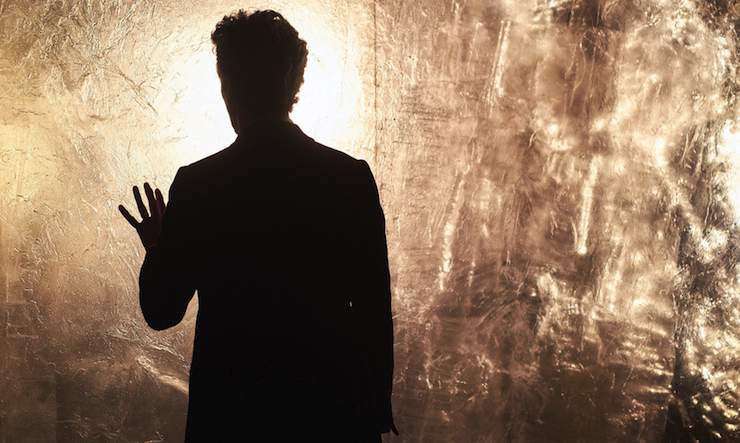
This episode was the perfect way for Moffat to use all his favorite storytelling tropes and come out clean—it doesn’t matter that the Doctor keeps resetting himself by using the teleport, because the effect it has on him is still real and sickening. It’s not a cheat to get away with some neat plot. (The revelation of the slow nature of Time Lord death was especially wrenching.) The Veil as a monster is something relevant to the Doctor’s history, created especially for him, but it doesn’t need to have any purpose beyond this episode. The convenience of the confession dial works even though it only showed up at the start of the season because it was sent to Missy, making it likely that the Time Lords sent to it her to get things in motion, or that she herself is behind all of this. For the confession dial to be housing this torture chamber is exactly the sort of awful thing you would expect of the Time Lords of the classic series. It’s like Rassilon’s Tower all over again to the max.
Peter Capaldi pulls out all the stops here, and while fans may prefer to think of him as the old and crotchety New Who Doctor, what struck me through this episode was how young and raw he seemed. Like the same Time Lord who fled his home all those years ago. And to have an script that engages so well when he’s the only person talking is a feat in and of itself.
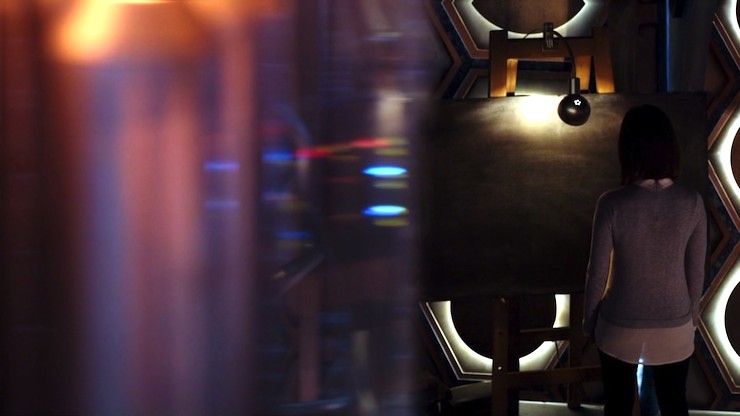
My only real concern is the hybrid storyline. The suggestion that the Doctor isn’t all Time Lord is one that has been brought up before and was semi-canonized by the terrible Doctor Who movie (which gave us nothing good aside from the blessing that is Paul McGann as the Eighth Doctor)—where it was said that the Doctor was part human. Which is a suggestion I’ve always hated, mostly because it removes the touching nature of the Doctor’s relationship with humanity. It’s one thing for this weird powerful alien to look at humans and see something amazing in us as a species… if he happens to be one of us, then that affinity becomes an obvious and boring thing. This is similarly true for his renegade status among the Time Lords. It means something for the Doctor to go against his own people, but if he’s half-human (or really half-anything else), then that half of him becomes the reason behind his rebelliousness. Hopefully there’s a little more to it than that, but we won’t know until next week….
You guys, we’re going back to Gallifrey. I’m really nervous. Going back to Gallifrey never goes well.
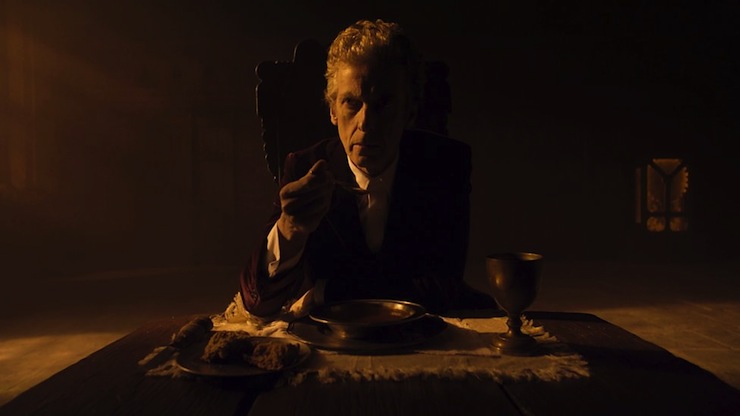
Little echoes and highlights:
- The Doctor tells the Gallifreyan boy that he came “the long way around,” which echoes the Eleventh Doctor’s final line from the 50th anniversary special.
- The Doctor tells himself to “assume that he’s going to survive,” a tactic that Clara noted with she was talking to Missy in “The Witch’s Familiar.”
- The suggestion that the Doctor ran away from Gallifrey because he was bored is something that the Second Doctor told his companions.
Emmet Asher-Perrin is still completely freaked out by all those skulls. You can bug her on Twitter and Tumblr, and read more of her work here and elsewhere.










